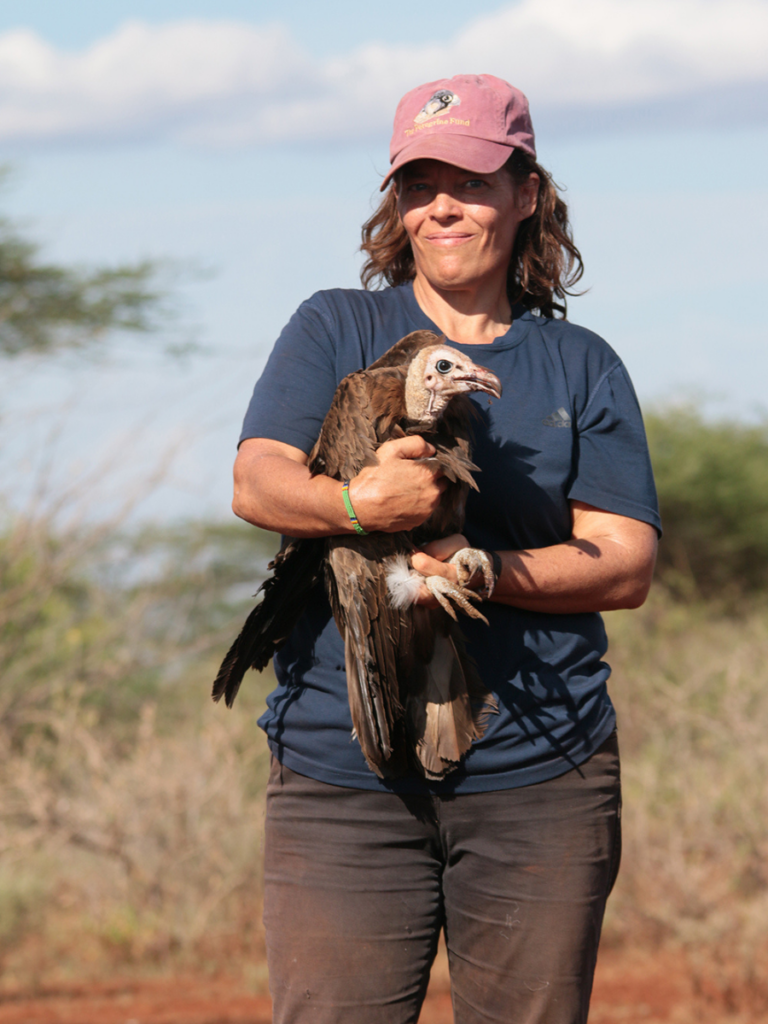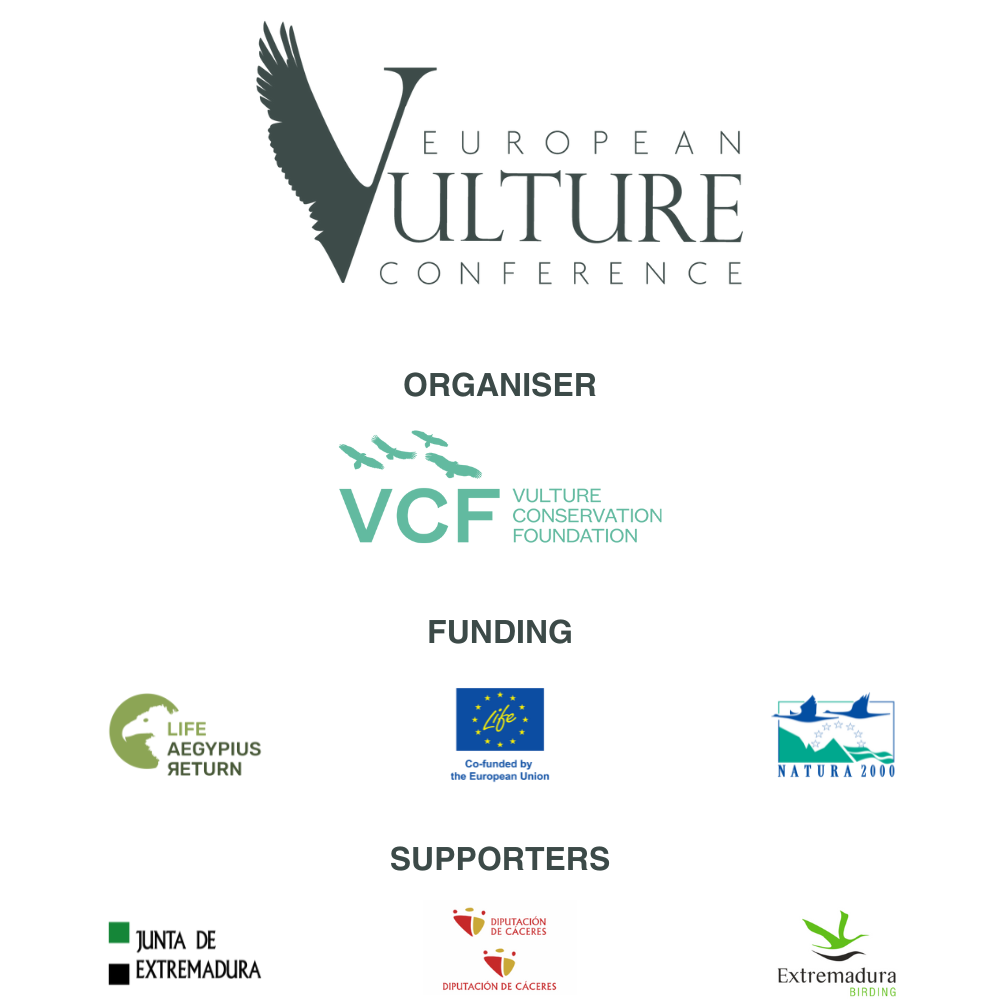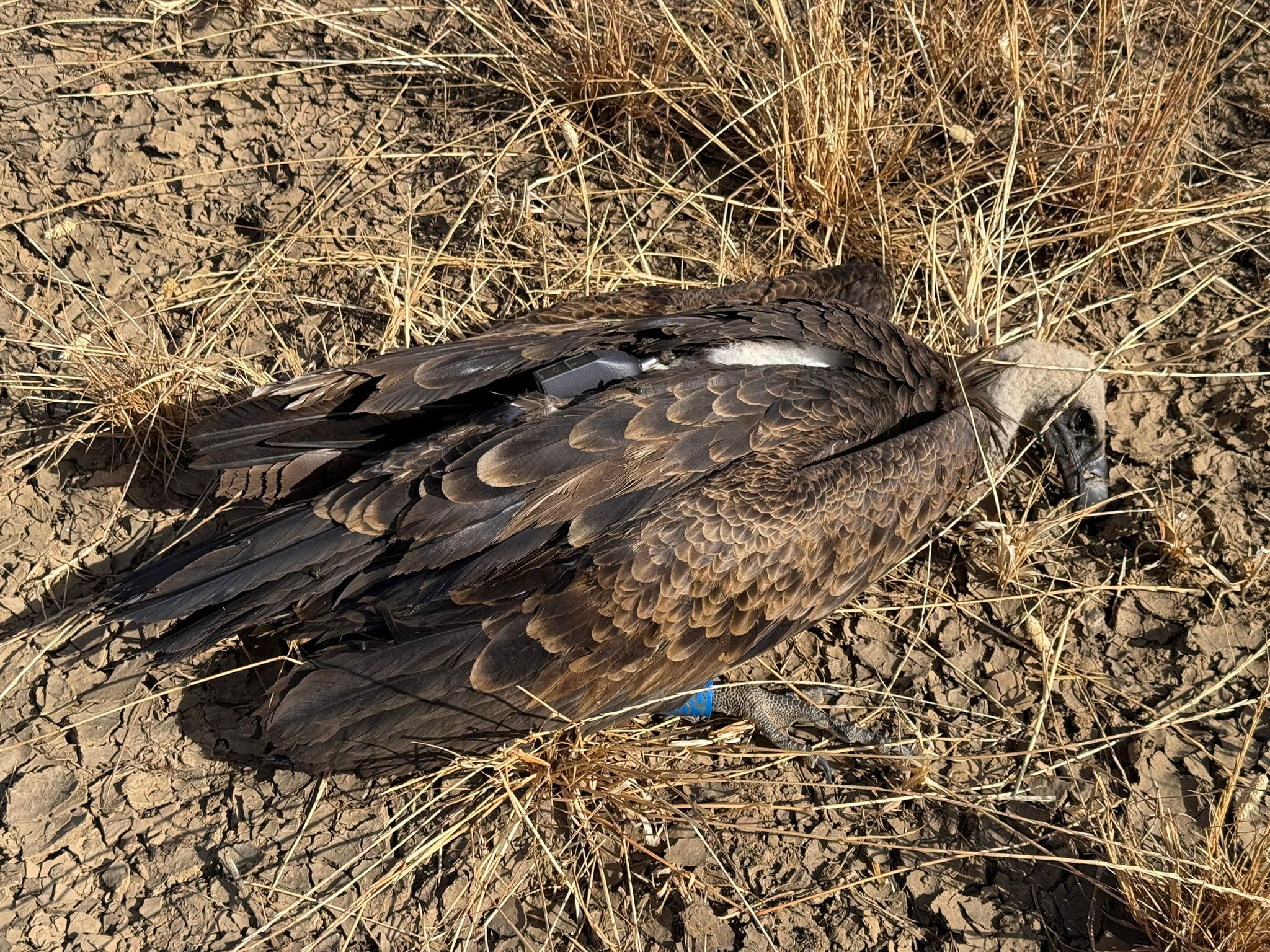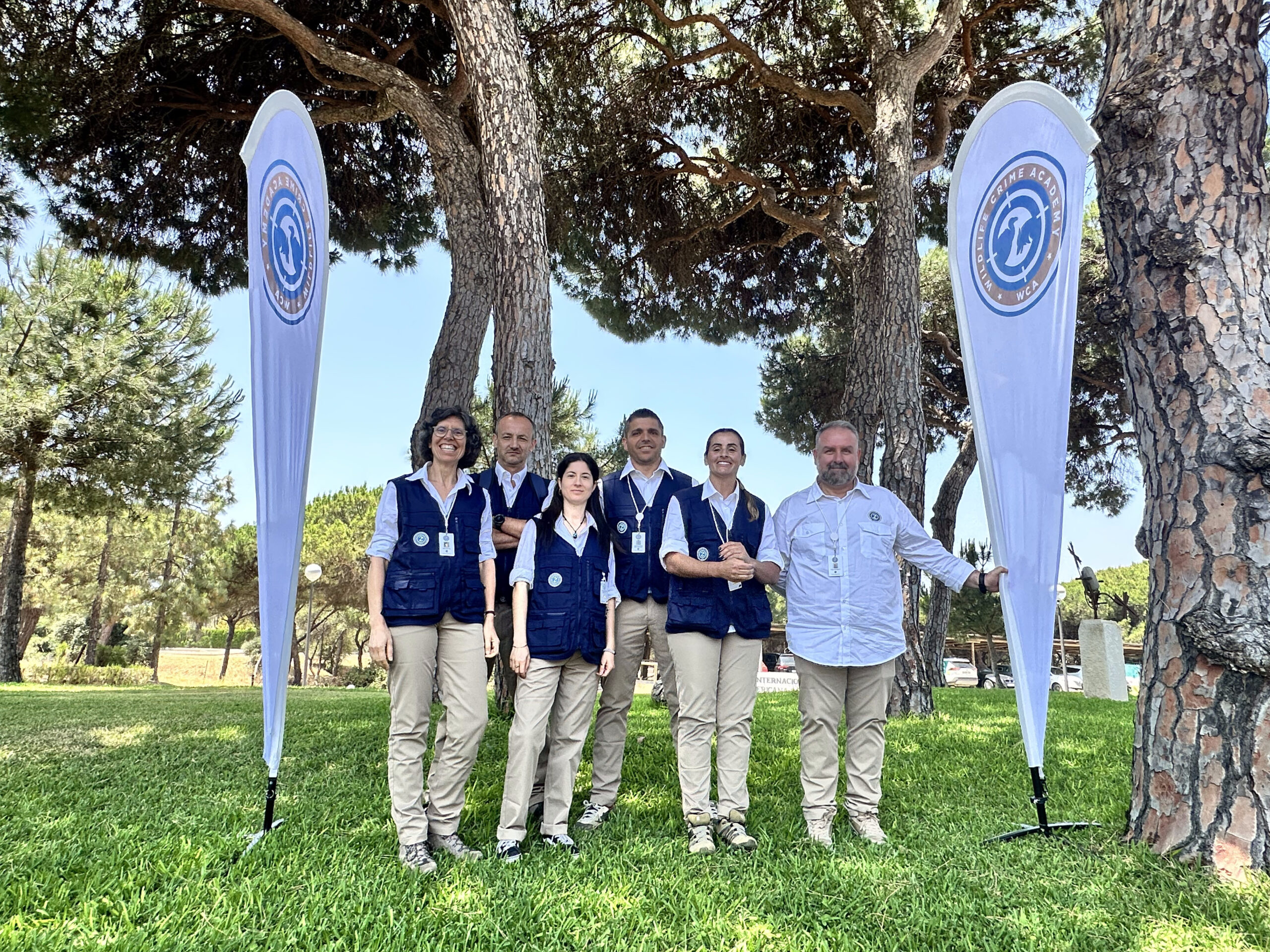Dr. Darcy Ogada will be a Keynote Speaker at the European Vulture Conference 2023. With her extensive expertise, she will dissect the complexities of vulture poisoning driven by belief-based practices, wildlife trade, conflicts, and sentinel poisonings. Her address, “Drivers of vulture poisoning are not created equal: disproportionate effects and their likely impacts on African and migratory European populations,” will provide insights, underscore the critical need to address vulture mortality and guide the way toward formulating effective vulture conservation strategies.

Understanding the problem: Vulture poisoning worldwide
Vulture poisoning, a serious threat that spans across continents, has become a concerning issue in vulture conservation. The African Wildlife Poisoning Database (AWPD) gives us a concerning view, showing that since 2000, a significant 13,800 vultures have died due to poisoning, averaging about 629 deaths each year. This shocking situation makes up a large 36% of all documented deaths. This reveals the dark side of vulture poisoning, often connected to conflicts between humans and carnivores. Large carnivores, in their quest for survival, unintentionally set off a chain of poisoning events. In response, illegal poison baits are used, harming not only carnivores but also innocent vultures.
Identifying the various causes of vulture poisoning
The AWPD findings uncover many reasons for vulture poisonings, beyond just human-carnivore conflicts. Belief-based traditions, the illegal trade of wildlife, and sentinel poisonings—when vultures reveal poachers’ illegal activities—contribute to this sad story. A notable discovery emerges: the number of vultures dying in a single incident varies based on the cause. Sentinel poisonings have the highest impact (average: 16), followed by belief-based practices (average: 14), wildlife trade (average: 6), and lastly, conflicts (average: 1). These different causes create a complex pattern of vulture deaths.
Poisoning variations across Africa


During the main keynote, Dr. Darcy Ogada will focus on examining the current danger posed by each cause of poisoning to vultures. This danger differs based on where you are in Africa, influenced by both environmental and cultural factors. The African landscape becomes a canvas where these causes create different levels of threat, each with its own challenges. The discussion will explore the ecological and cultural aspects that shape this complicated situation.
Pathways to recovery: Looking forward
Despite these difficult circumstances, there are some hopeful signs. Recent data shows a decrease in sentinel poisonings, which is encouraging news for both African and European vultures that migrate. However, the main challenge remains in stopping vulture deaths due to belief-based practices. Solving this issue requires various solutions that go beyond traditional approaches. We also need to understand the potential risks to human health from using vulture-related products, which will help us find practical solutions.
Creating change: Working together for vulture conservation
Finding solutions to belief-based practices requires strong leadership from the people in the affected areas. African professionals are ready to use social norms and values to bring about meaningful behavioural change. This change depends on building and strengthening skills, as we strive to reverse the alarming decline in vulture populations across Africa. International organizations also have a role to play by supporting this important effort. Dr. Ogada’s remarks and insights promise to chart a course toward effective vulture conservation strategies.
A close look into the professional career of Dr. Darcy Ogada
Dr. Darcy Ogada’s background showcases her unwavering commitment to vulture conservation. Her post-doctoral fellowship at the Smithsonian Institution in Kenya’s Mpala Research Centre paved the way for her study of how vulture declines impact disease transmission. With a PhD in Zoology from Rhodes University, she explored the interactions between Mackinder’s eagle owls and agricultural landscapes, as well as cultural attitudes.
Dr. Ogada currently serves as the Africa Program Director at The Peregrine Fund in Nairobi, Kenya. Her accomplishments include being an Associate Editor of Vulture News and a member of the Technical Advisory Group to the Raptors MOU under the Convention on the Conservation of Migratory Species of Wild Animals (CMS). Dr. Ogada also plays a crucial role as the Africa Regional Co-Chair and Red List Authority for the IUCN Vulture Specialist Group, guiding vulture conservation efforts both in Africa and globally. In the vast landscape of vulture conservation, Dr. Darcy Ogada’s impact is a significant thread, woven with purpose and dedication.
Exploring the effects of poisoning on African and European populations
Dr. Ogada’s talk will explain the complex vulture conservation situation and the urgent need to address vulture poisoning. Join the European Vulture Conference to hear her insights, which will help shape vulture conservation in the future.
Set to take place in Cáceres, Spain, from 14 to 17 November, the European Vulture Conference 2023 provides a unique opportunity to expand your network, share your work, and learn from leading vulture conservationists and researchers. The event includes presentations, workshops, and poster sessions that offer the latest research and insights into vulture conservation across Europe and beyond. Additionally, side activities will allow you to explore the vulture-rich region of Extremadura, enjoy a cultural visit in Cáceres city centre, partake in a conference dinner, and experience unforgettable field trips.




